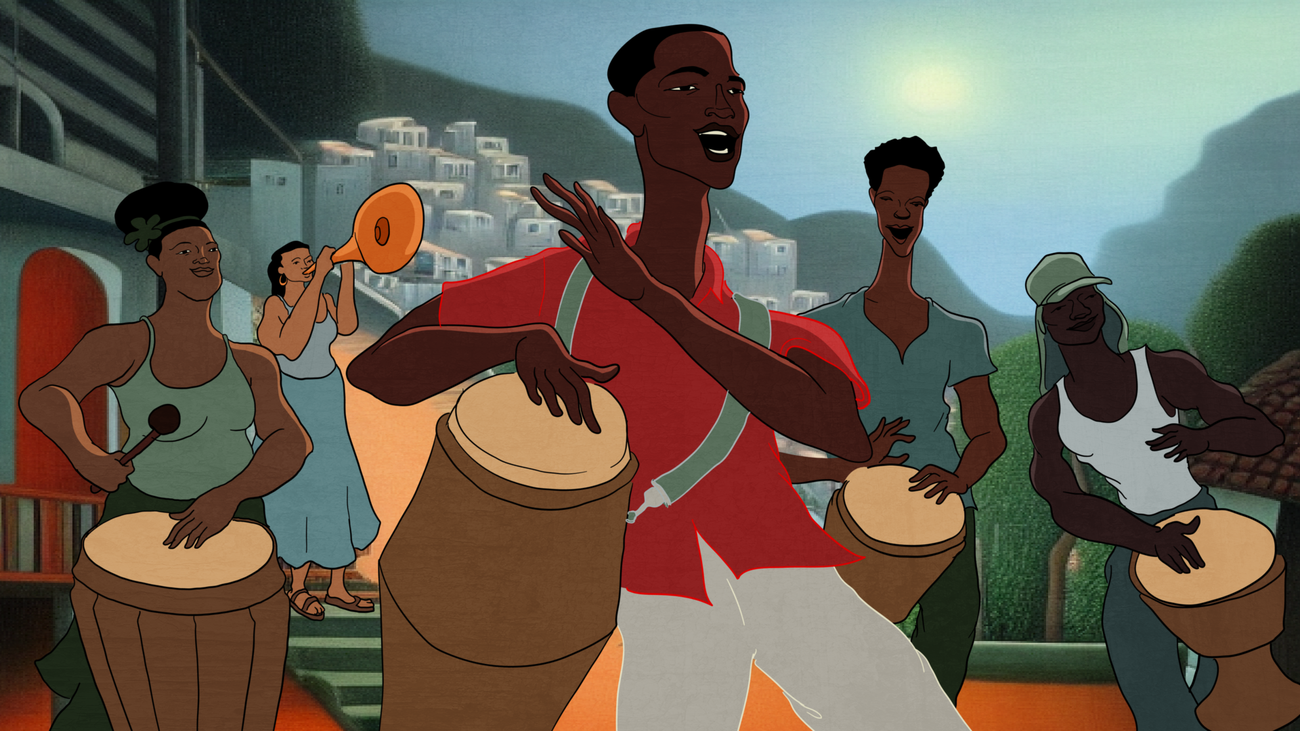
This event was first posted via People's Palace Project. Find the original post, in Portuguese, here.
Centro Cultural Banco do Brazill and People's Palace Projects Brazil are hosting the First Haitian Film Festival in Brazil from 18 to 26 May 2024 at the CCBB in Rio de Janeiro.
The exhibition
The 1st Haitian Film Festival, at CCBB Rio, will offer the public a unique opportunity to watch six productions by filmmakers from Haiti and Brazil, including feature films, shorts, documentaries and animation. In the programme, the films Freda, Barikad, Terremoto and Chache Lavi revisit the country's troubled past, the 2010 earthquake that killed 300,000 Haitians and brought thousands to Brazil, but also project the possibility of a hopeful future and the present doubt about whether to immigrate or resist in order to survive in Haiti.
The festival takes place at a time when the small and populous Caribbean country is once again plunged into a deep political crisis with the dominance and threat of violent armed gangs.
Curated by Haitians and MIDEQ researchers Richemond Dacillien and Ismane Desrosier, who live in Brazil, the exhibition hopes to make the public reflect on the forgotten country and on the presence of 161,000 Haitians in Brazil who are trying to integrate into our reality, facing racism and discrimination.
"Haiti, the world's first independent black republic, has been going through an unprecedented crisis for several decades, resulting in the migration of a large part of its population in search of a better life, thousands of them to Brazil. That's why it's important to create more space for a cultural exchange between these two peoples, offering Brazilian audiences some of the best films from the Haitian film industry which, despite the country's catastrophic situation, remain among the best films ever produced in the Caribbean region." - Richemond Dacillien, curator of the exhibition
Film Synopses
FREDA | Directed by Gessica Généus | 74 min | Drama, feature film
‘Freda’ is an in-depth look at the future of Haiti. In this feature film, the young Haitian filmmaker presents images of Port-au-Prince that differ from the natural disasters portrayed by the international media. Géneus celebrates Haitian youth with a complex female portrait. It tells the story of a young woman, Freda, who lives with her mother and sister in a working-class neighbourhood of Port-au-Prince (Lalue). Faced with the challenges of daily life in Haiti, each of them wonders whether to flee or stay. Freda, the name of a deity born of opulence and sexuality and the film's main character, wants more than anything to believe in the future of her country
BARIKAD | Directed by Richard Sénécal | 2001 | 111 min | Drama, feature film
One of Haiti's most popular dramas in recent years, Barikad combines feelings of love and class prejudice. The most insurmountable barriers are not those we put in our way, but those we impose on ourselves through our prejudices, our intolerance, our contempt for others and our low (or very low) self-esteem.
COUSINES | Directed by Richard Sénécal | 2006 | 106 min | Drama, feature film
‘Cousine’ is a captivating look at the temptations and choices that some people have to make in order to survive in Haiti. The film follows the life of Jessica, a young Haitian woman whose quiet life in Port-au-Prince is turned upside down by the sudden death of her father. Without him to pay the bills, she soon finds herself on the streets. But she is taken in by her friend Johanne, a woman who lives a life of luxury thanks to the ‘generosity’ of her many lovers. The story is set in the lush landscapes of Haiti.
EARTHQUAKE | Directed by Gabriel Martins | 2022 |26min | Documentary
In 2010, Haiti suffered a massive earthquake that left more than 300,000 dead. Among the victims was the family of Nicolson and Niky Augustin, two young Haitians. Trying to get back on their feet in the following years, the boys' family saw no way out but to move to Brazil, more specifically to the outskirts of Contagem, Minas Gerais. There, without knowing how to speak the language, they had to adapt to a new reality and educate their children.
CHACHE LAVI | Directed by Clementino Junior | 2023 |29 min | Documentary
According to the UNHCR, around 161,000 Haitians live in Brazil, most of them having arrived since the earthquake in Haiti in 2010. The documentary, made by Clementino Jr. as part of the MIDEQ research project, investigates the challenges faced by migrants in Brazil, as well as their dreams.
UNSTOPPABLE BEAT | Directed by PositivesNegatives| 2023 | 6 min | Animation
The film tells the story of a Haitian migrant in Brazil who fights for his rights to work, buy a house and, most importantly, be reunited with his Haitian family. This animation was made as part of the MIDEQ project to reflect the difficulties of Haitian migrants in Brazil. Available in Portuguese and Haitian Creole.

Performances
In addition to the film screenings, the exhibition will also include a chat between Haitian directors and artists and free performances by the group Clamor! in the lobby of the CCB, a performance of dance, singing, percussion and circus arts with around 20 migrants from Haiti, African countries and artists of Afro-Brazilian descent.
The exhibition is an follow up of an international research project in which the curators worked as senior researchers, MIDEQ. MIDEQ explored the relationship between migration, inequalities and development in the Global South, with a focus on six migration "corridors" including Haiti and Brazil.
In September 2023, the art and research centre for social justice, People's Palace Projects, facilitator of the research in Brazil, and Uniperiferias produced Dialogues - Changing Narratives on Migration at the Museum of Tomorrow, strengthening the debate on racism and inclusion in Brazil between civil society, Caribbean and African migrants and the federal government. Migrants offer us the opportunity for a rich and diverse cultural exchange.